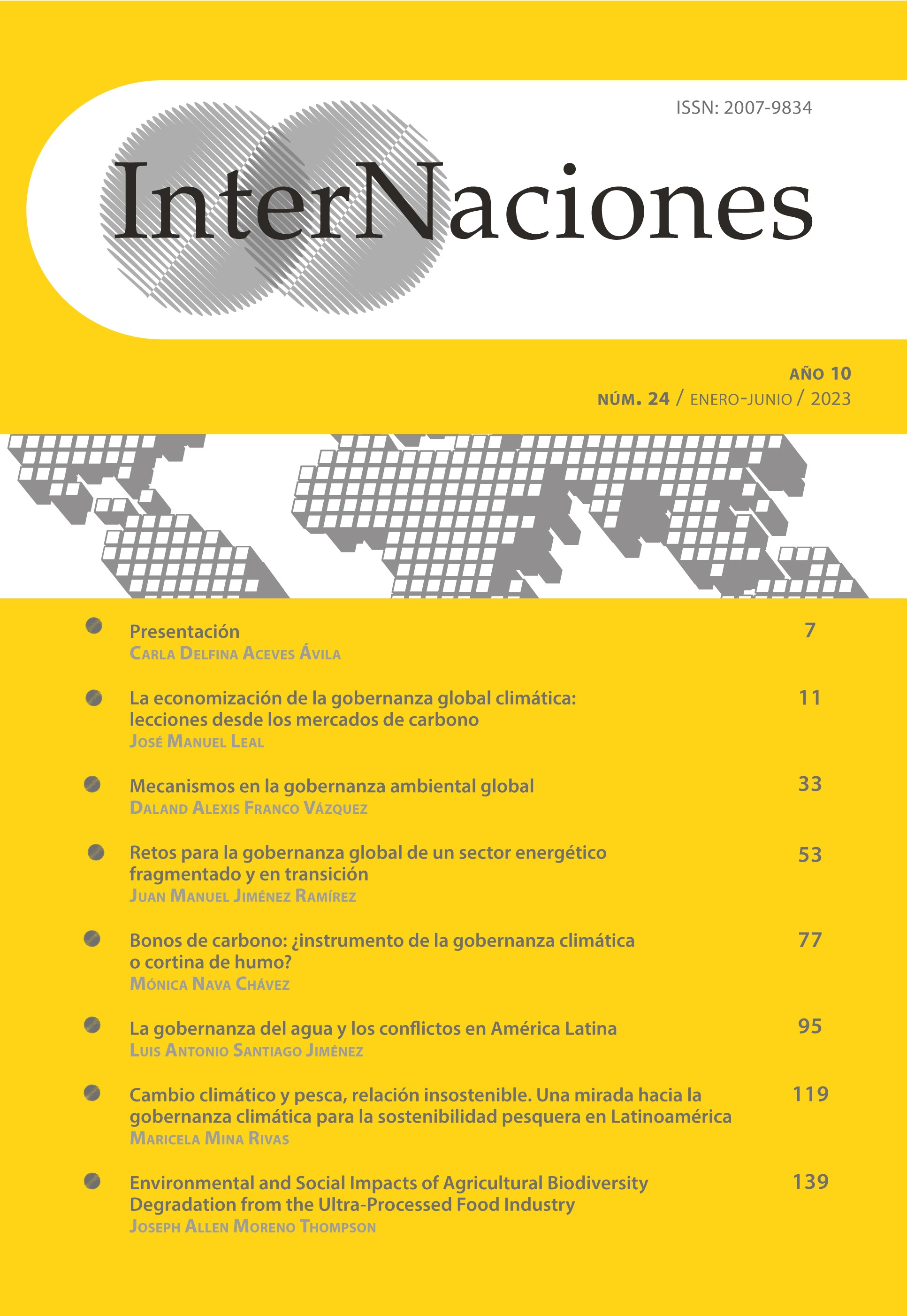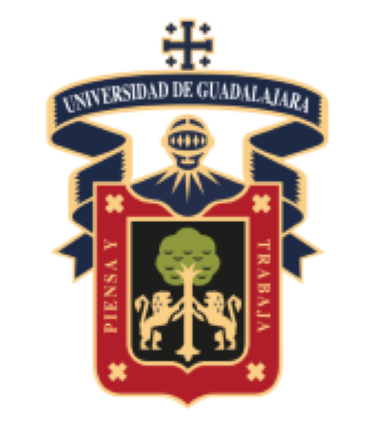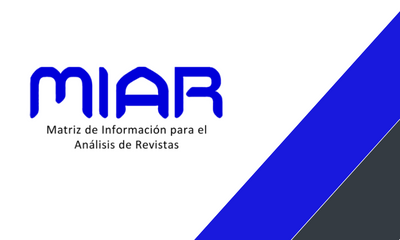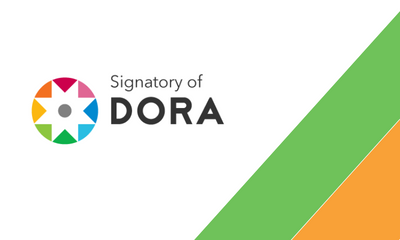Water governance and conflicts in Latin America
DOI:
https://doi.org/10.32870/in.vi24.7242Keywords:
water scarcity, Latin America, virtual water, water footprint, water governance, water conflictsAbstract
This article analyzes the importance of water for the growth and development of Latin America, as well as the causes of the great scarcity of water that this area has, being one of those with the most water resources. From the analysis of the water footprint and virtual water, we note the economic impact it has on world trade. Added to this, the failure to implement watergovernance also contributes to water inequity, causing instability in the local system, regional or global. Faced with this critical situation of water scarcity, the tension between regions has increased, bringing us closer to a future where conflicts over water will be more frequent.Downloads
References
Campos, S. (21 de Marzo de 2019). Latinoamérica, una región rica en agua, obligada a gestionar mejor el recurso. (D. Marín, Entrevistador) Agencia EFE. Obtenido de https://www.efe.com/efe/america/sociedad/latinoamerica-una-region-rica-en-agua-obligada-a-gestionar-mejor-el-recurso/20000013-3931723
Carius, A., Dabelko, G. D., & Wolf, A. T. (2004). Water, Conflcit and Cooperation. Washintong, DC.
CEPAL. (2019). Red de Cooperación en la Gestión Integral de Recursos Hídricos para el Desarrollo Sustentable en América Latina y el Caribe. Santiago de Chile: División de Recursos Naturales.
CHAPAGAIN, A., HOEKSTRA, A., & SAVENIJE, H. (2004). Saving Water Throught Global Trade. Informe de la serie “El Valor del agua". Delft, Países Bajos.: UNESCO-IHE.
CONAGUA. (2018). AGUA VIRTUAL EN MÉXICO. SEMARNAT. Obtenido de https://apps1.semarnat.gob.mx:8443/dgeia/informe18/tema/recuadros/recuadro6_1.html
Crossette, B. (1995). Severe Water Crisis Ahead for Poorest Nations in Next two Decades. New York: New York Times.
NACIONES UNIDAS. (2004). Segundo Informe sobre Recursos Naturales. Nueva York.: Doc. ONU A/CN. 4/539.
OCDE. (2015). Principios de Gobernanza del Agua de la OCDE.
Peña Ramos, J., & Barbeito Cuadri, A. (2013). EL AGUA DULCE EN LA AGENDA DE SEGURIDAD INTERNACIONAL DE COMIENZOS DEL SIGLO XXI. España: Instituto Español de Estudios Estratégicos .
Wolf, A. T., Kramer, A., Carius , A., & Dabelko, G. D. (2005). Gestionando conflictos por el agua y cooperación. Madrid: Centro de Investigación para la PAZ (CIP).
Zaveri, E., Russ, J., Khan, A., Damania, R., Borgomeo, E., & Jägerskog, A. (2021). Fluctuaciones: Volumen 1. Agua, migración y desarrollo. Washington, DC: Banco Internacional de Reconstrucción y Fomento/Banco Mundial.
Downloads
Published
How to Cite
Issue
Section
License
Copyright (c) 2022 University of Guadalajara

This work is licensed under a Creative Commons Attribution-NonCommercial-ShareAlike 4.0 International License.
CC BY-NC-SA 4.0 https://creativecommons.org/licenses/by-nc-sa/4.0/



























